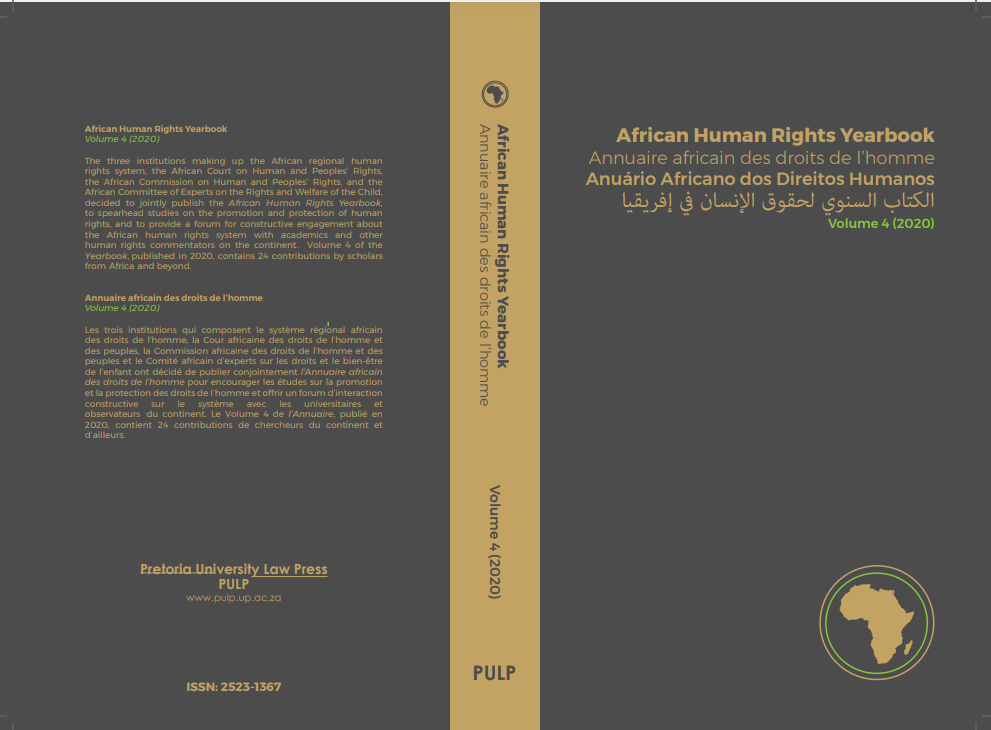Fashioning rights in the African Court on Human and Peoples’ Rights: understanding the proceduralisation of substantive rights
DOI:
https://doi.org/10.29053/2523-1367/2020/v4a1Keywords:
African Court on Human and Peoples’ Rights, proceduralisation, procedural obligation, substantive rightsAbstract
ABSTRACT:In the contemporary practice of international human rights adjudication, it is increasingly recognised that almost every substantive right implies a positive action of establishing effective procedures to ensure its enforcement. In intensifying their scrutiny of domestic procedures designed to ensure respect for human rights treaty provisions in the national order, regional human rights courts have developed a practice of adding a procedural obligation to national authorities to strengthen the internal protection of substantive rights. While such a practice remains unnamed in human rights law jurisprudence, scholars have described it as the ‘proceduralisation’ of substantive rights. In essence, the proceduralisation of substantive rights, as an offshoot of judicial activism, seeks to ensure the concretisation of rights by both widening the scope of obligations and strengthening the requirement for their protection. While this issue has been topical in scholarship relating to the European Court of Human Rights, there is no systematic analysis of how proceduralisation has so far helped the African Court on Human and Peoples’ Rights to fashion the trajectory of substantive rights in widening the scope of obligations and deepening the requirement of their protection. This article intends to fill that gap.
TITRE ET RÉSUMÉ EN FRANCAIS: Le façonnage des droits à la Cour africaine des droits de l’homme et des peuples: comprendre la procéduralisation des droits substantiels RÉSUMÉ:
Dans la pratique contemporaine du contentieux international des droits de l’homme, il est de plus en plus reconnu que presque chaque droit substantiel renferme une action positive implicite de mettre en place des procédures efficaces permettant de revendiquer au niveau national le droit en cause. Les cours régionales des droits de l'homme, en intensifiant leur contrôle des procédures internes destinées à assurer le respect des dispositions des traités des droits de l’homme dans l’ordre national, ont développé une pratique d’adjonction jurisprudentielle d’une obligation procédurale à charge des autorités nationales pour renforcer la protection interne d’un droit substantiel garanti. Bien que cette pratique prétorienne reste innommée dans la jurisprudence, la doctrine l’a décrite comme étant la «procéduralisation» des droits substantiels. En substance, la procéduralisation des droits substantiels, en tant que ramification de l’activisme judiciaire, vise à assurer la réalisation effective des droits garantis en élargissant le champ des obligations des États et en renforçant l’exigence de leur protection. Si cette question est d'actualité dans la littérature sur la Cour européenne des droits de l’homme, il n’existe aucune analyse systématique de la manière dont la procéduralisation a jusqu'à présent aidé la Cour africaine des droits de l'homme et des peuples à façonner la trajectoire des droits substantiels en élargissant la portée des obligations et en approfondissant l’exigence de leur protection. Cet article vise à combler ce vide.


